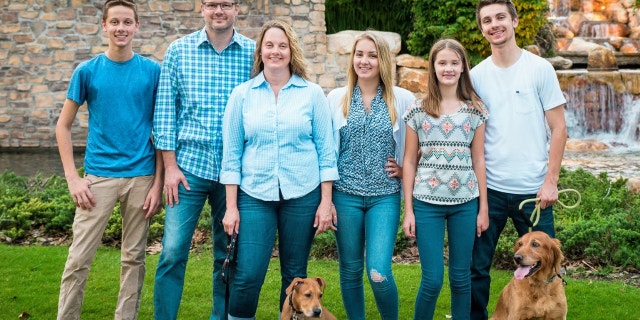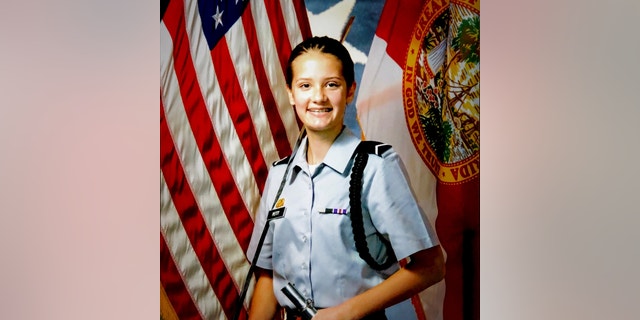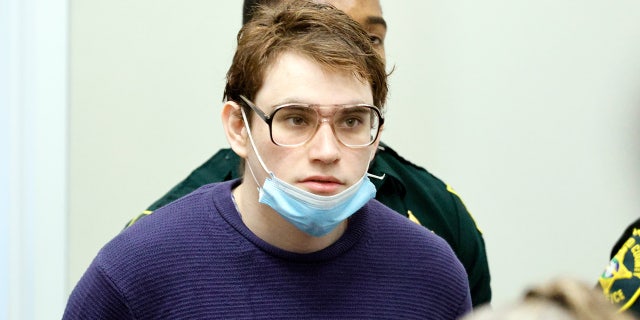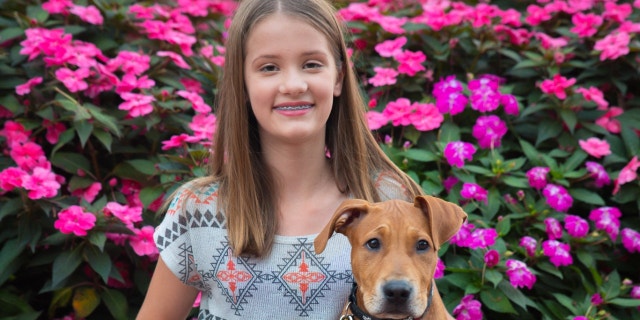

Father of Parkland shooting victim speaks out on tragic anniversary: 'Criminals don’t obey gun laws'
One of the students killed was 14-year-old Alaina Petty, a member of the ROTC.

14-year-old Alaina Petty, pictured with her family. (Courtesy of Ryan Petty)
When asked if the media has given fair coverage to both sides of the debate around the Second Amendment following the Parkland tragedy, Petty said the reporting at the time was mostly one-sided. One week after the massacre, CNN hosted a controversial town hall in Parkland that featured heckling of the pro-gun rights voices on hand.
"The focus from most of the national media was from the beginning on the gun control narrative," he said.
As a result, some of the steps that Petty and other families took in the wake of the Parkland shooting to protect children have struggled to be heard on the national stage.
"The real impact that we had as families politically and the changes that we made in Florida got lost in some of that initial media coverage," he said.
FLORIDA LAWMAKERS INTRODUCE BILL TO ELIMINATE UNANIMOUS JURY REQUIREMENT FOR DEATH PENALTY
He emphasized that gun control was not a realistic or even fair solution to stopping school shootings.
"I don’t think gun control would solve these problems. There are too many guns already in the hands of Americans across the country. The thought that we can pass some new gun control law and protect our schools just doesn’t make any sense, especially when you understand what happened," Petty said.
That’s because school shootings are complex and require a number of solutions and prevention tactics, he explained.
Petty also told Fox News Digital in a previous interview that gun control doesn’t work on a basic level because "criminals don’t obey gun laws."
But schools can and still should take practical steps toward building a safer environment for students, Petty said.
Petty, who is a member of the Marjory Stoneman Douglas High School Public Safety Commission, has been charged with understanding "what happened, why it happened and what could be done to prevent a similar tragedy from happening again at any other school in Florida."

14-year-old Alaina Petty was one of 17 students and staff killed at Marjory Stoneman Douglas High School during the 2018 shooting. She was a member of the ROTC. (Courtesy of Ryan Petty)
He gave a few concrete examples of security improvements for schools interested in better protecting their students.
"Simple things like locking gates and locking doors, making sure you know who’s on the campus and do they have permission to be there. Those are very easy, inexpensive steps that every school should be doing," he said.
To that, he also added armed security on school campuses and active shooter drills for students and teachers. Going beyond school campuses, Petty said local communities and law enforcement should be focused on preventing school shootings in the first place.
"Over 90 percent of the attackers tell somebody about their intentions. They tell somebody about their plan. They make a threat. Those threats can be acted on, and the sooner we learn about a potential threat, the more options we have," he said.
But the response of some in the media and government that want to restrict the Second Amendment is not a realistic way to actually protect children, Petty said.
"We don’t need to infringe on the rights of law-abiding citizens to protect our schools. What we need to do is take the threats that are made seriously and act on those."
FLORIDA BAR WEIGHING INVESTIGATION INTO NIKOLAS CRUZ LAWYER AFTER SHE FLIPPED OFF CAMERAS, LAUGHED
Instead, as a result of these and other policy improvements, Petty said that Florida schools have already become a much safer place for children.
"I feel that five years on, our schools are much safer," he said.
But that doesn’t mean Florida parents should become complacent, Petty said. Petty gave another lesson that he has acquired during his research with the Marjory Stoneman Douglas Safety Commission.
"What we learned about these attackers, these assailants, is that they’re not sophisticated planners and often, they’re cowards," he said.

The Parkland shooter, Nikolas Cruz, murdered 17 students at Marjory Stoneman Douglas High School. He was sentenced to life in prison without the possibility of parole. (Amy Beth Bennett/South Florida Sun Sentinel via AP, Pool)
FLORIDA PARKLAND SCHOOL SHOOTER NIKOLAS CRUZ SENTENCED TO LIFE IN PRISON
Knowing that, one way to help stop school shootings was by implementing "behavioral threat management," which is based on the techniques that the Secret Service uses to protect the President.
Under Florida’s new system of preventing school shootings, a "threat management team" assesses the urgency of the situation and acts accordingly, he explained.
"Those behavioral threat teams are in every school in Florida," Petty said.
And the threat is still a real and present one, he added, mentioning four Florida students who claimed that they were going to shoot students at Parrish Community High School in a TikTok video.
All students were arrested for making threats against the school.
PARKLAND VICTIMS' FAMILIES FACE SHOOTER FOR THE LAST TIME: 'LET THIS CREATURE BE ERASED'
Petty spoke directly to parents who are concerned about their child’s safety.
"Have a conversation with the school. Talk with the principal," he suggested, giving a number of questions that parents should be asking their school administrators. "‘Do you have an active shooter policy? Are you performing drills? Are your teachers trained? Do they understand what to do in case of an attack?'"
He also said that schools should notify parents as soon as possible in the event of a threat to students.

"We never thought it would happen to us. But it can happen anywhere. And parents, you are the best line of defense for your child," Petty told Fox News Digital. (Courtesy of Ryan Petty)
But Petty added that if parents feel that their concerns are being ignored by their school leadership, then they should speak out at their school board meetings.
"If you don’t get the answers you like, then you show up at those school board meetings, and you need to advocate for the safety of your child because we never thought this could happen in Parkland," he said.
"We never thought it would happen to us. But it can happen anywhere. And parents, you are the best line of defense for your child. Make your voices heard."
